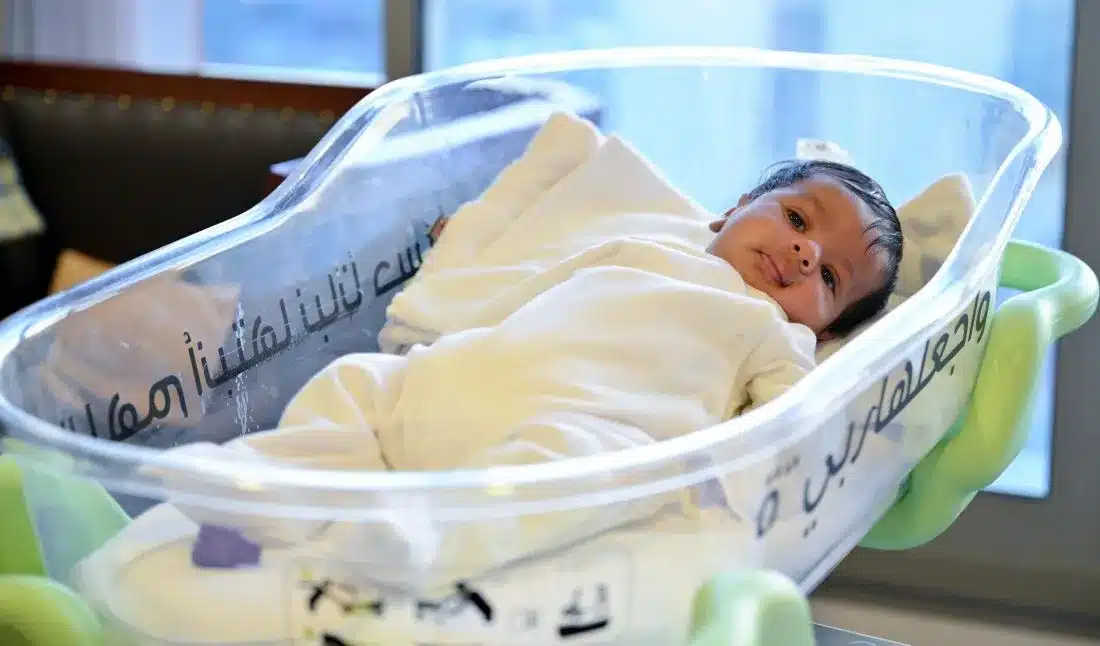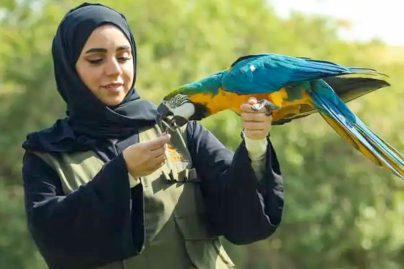UAE authorities managed Zolgensma injection (cost around AED 8 million), to save the life of 44-day-old infant with SMA 1
Wed 06 Mar 2024
Forty-four-day-old Emirati Infant Battling SMA 1 Receives Life-Saving Treatment with Zolgensma
Abu Dhabi: A 44-day-old Emirati infant, diagnosed with the rare genetic disease Spinal Muscular Atrophy type 1 (SMA 1), has received the Zolgensma injection, a pioneering medicine used to combat this genetic disease. The successful administration of this groundbreaking gene therapy has been made possible due to early detection and swift collaboration between multiple stakeholders, including Burjeel Hospital, Abu Dhabi, and the authorities.
The journey of baby H. Al Ameri began when his vigilant mother noticed unusual signs shortly after his birth. Slow movement, a lack of crying, and a soft voice raised concerns that prompted the family to seek medical advice. A genetic test revealed the presence of spinal muscular atrophy type 1— an often-fatal disease.
“I was shocked when we learned about this disease, especially since I had never heard of it before. I could not bear it. He did not show any symptoms, except that his hand was not moving,” said L. Al Ameri, recalling her son’s diagnosis.
The parents of the baby approached Dr. Hussein Nasser Matlik, Consultant Pediatric Neurology & Head of Department at Burjeel Hospital, Abu Dhabi, who advised them to expedite the treatment.
According to Dr. Matlik, SMA 1 is a disease which, without treatment, is 90% fatal in the first year. The deficiency of the SMN protein, crucial for motor neuron function, leads to muscle weakness and wasting and loss of movement in children with the condition.
Elaborating on the life-saving potential of the medicine, he said, “Three treatment options exist for this condition at present. Among them, Zolgensma is a one-time treatment that is considered to address the root of the issue. It replaces the faulty or missing SMA gene, allowing the body to produce sufficient SMN protein to maintain motor neurons.”
Zolgensma, however, is not without potential side effects, which can include liver problems, low platelets, and elevation in heart enzymes. Prior to administering the drug, the medical team took many precautions to prevent adverse effects.
“To prevent complications, prior to administering Zolgensma, he was given steroids the previous day. We will be continuing with steroids for at least one month. We will be closely monitoring liver enzymes and blood tests weekly for at least one month. When the liver enzymes come back to normal levels, we plan to stop the steroids,” said Dr. Matlik, adding that if the medicine has worked and there are no complications, the child can expect to lead a normal life.
According to the hospital, the necessary approvals came within days, paving the path for the child to receive the medication as soon as possible.
As the child’s parents were initially worried about giving this medicine to their infant son, the hospital also put them in touch with other families whose children were diagnosed with SMA 1. “The families I spoke to had children who took this medication at a later age. Everyone highlighted that it was a good thing we caught this disease early in my baby and advised us to go ahead with the treatment,” said L. Al Ameri.
Two weeks after the infusion of the medicine, the medical team started witnessing improvements in baby H. Al Ameri. He has been weaned off oxygen support, has started breastfeeding and there is an improvement in his motor movements. The medical team is now optimistic that he will achieve his early childhood milestones.
Read This Also: In 2024, the online shopping population in the UAE reached 6.5 million
Despite the challenges they faced, the family remains thankful for the health and safety of their infant, emphasizing the power of faith in overcoming adversities. “We are thankful to the Almighty for the safety and health of our baby. We are grateful to the UAE and the authorities for providing the best treatments to patients. We also appreciated the efforts of the medical team who were by our side throughout this challenging period,” said L. Al Ameri.
As he recovers from this rare condition, H. Al Ameri’s journey not only highlights the importance of early detection, genetic testing, and timely treatment but also offers hope to families grappling with similar challenges.

 Apr 28 2024
Apr 28 2024













